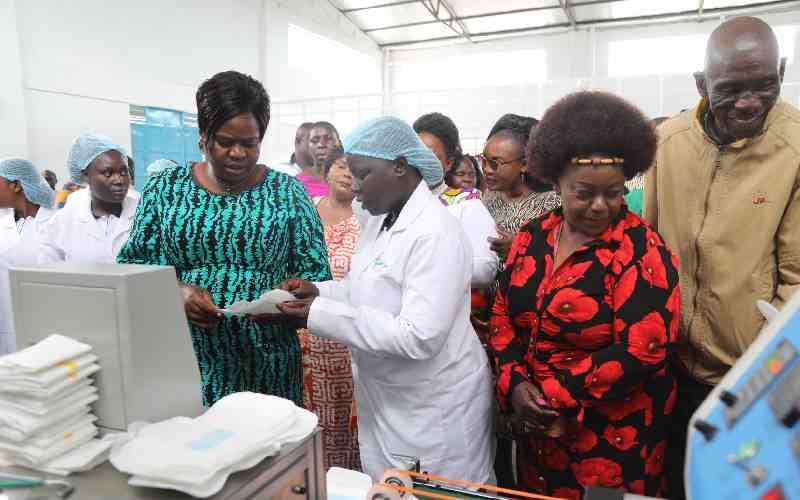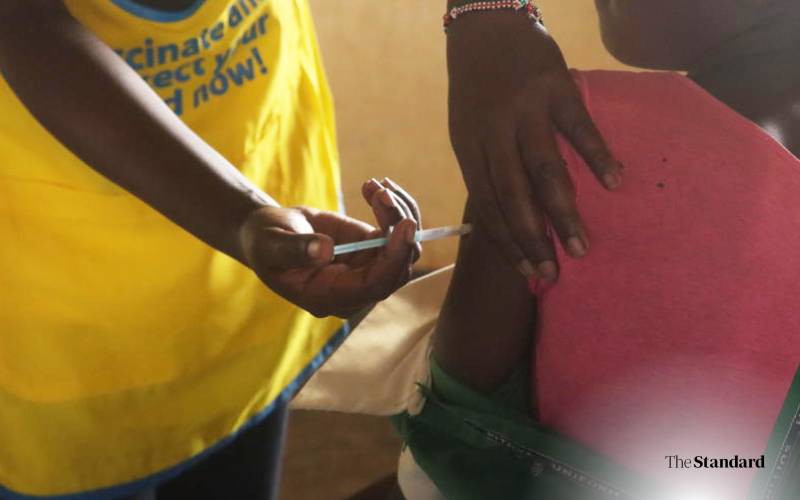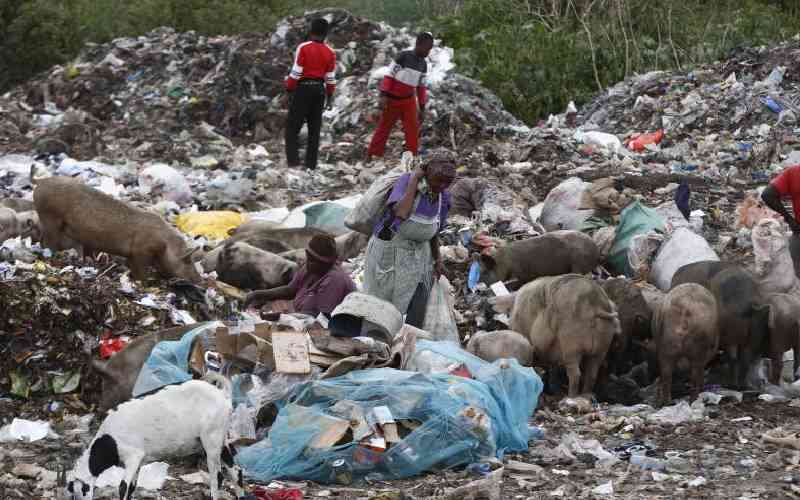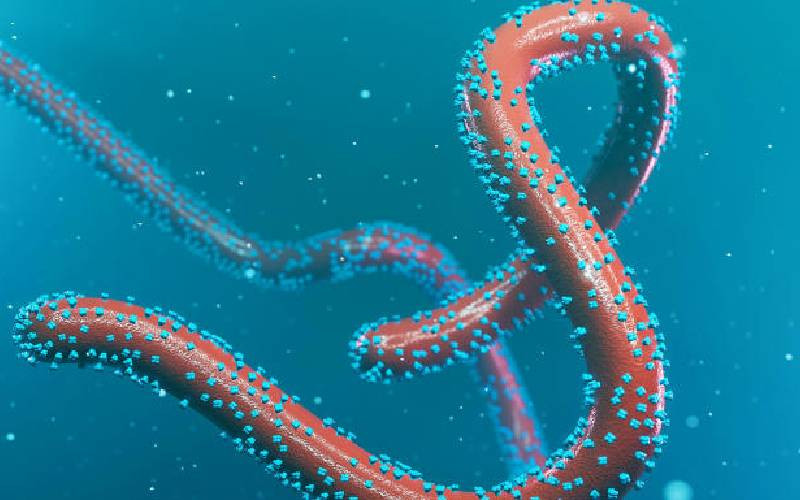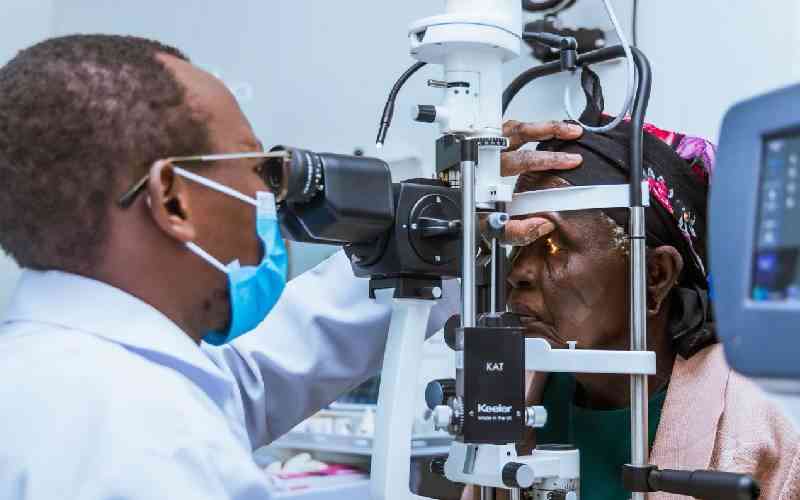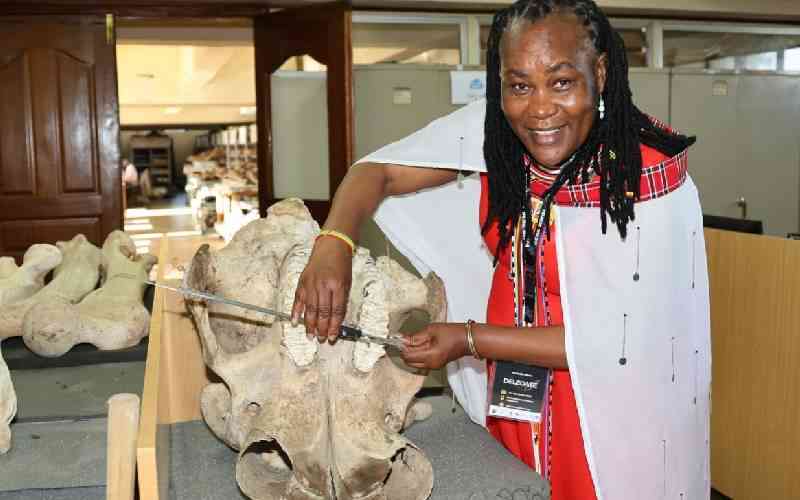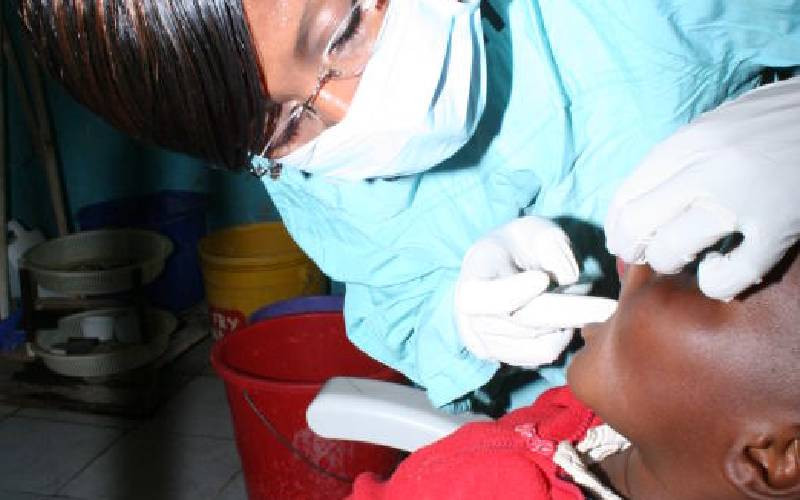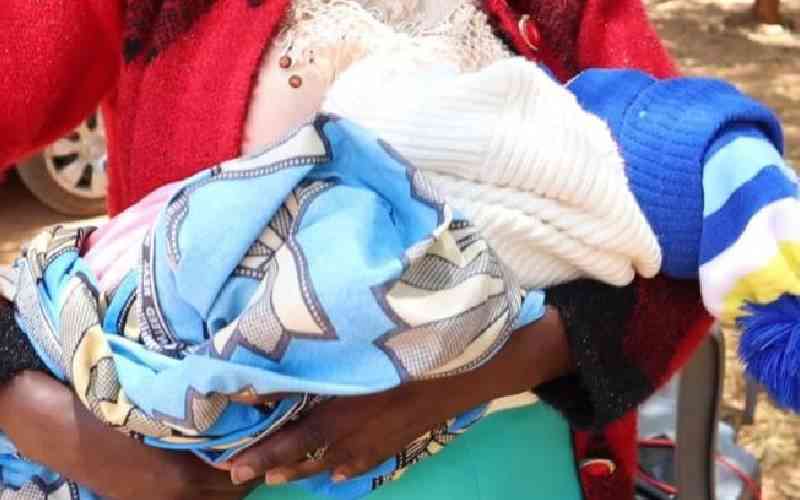
When most people hear of kidney failure, they assume it is a condition for older people who have diabetes and hypertension. Little do they know that kidney failure can affect even a newborn baby.
Josephine Mulwa, a mother of four from Kavilinguni Village in Kangundo Sub-County in Machakos County found herself nursing a newborn baby diagnosed with acute kidney injury a week after delivery.
She could not understand why her new baby was unable to pass urine and was looking so pale.
 The Standard Group Plc is a multi-media organization with investments in media
platforms spanning newspaper print
operations, television, radio broadcasting, digital and online services. The
Standard Group is recognized as a
leading multi-media house in Kenya with a key influence in matters of national
and international interest.
The Standard Group Plc is a multi-media organization with investments in media
platforms spanning newspaper print
operations, television, radio broadcasting, digital and online services. The
Standard Group is recognized as a
leading multi-media house in Kenya with a key influence in matters of national
and international interest.


